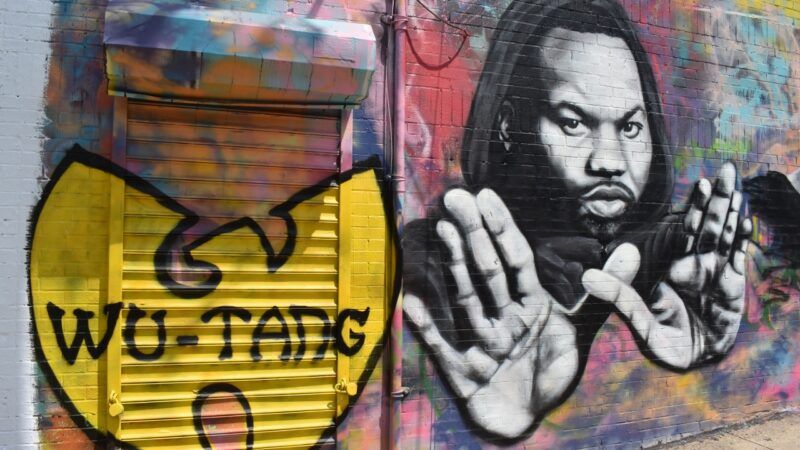How the Government Seized a Rare Wu-Tang Clan Album (and a DAO Bought It Back)
Once Upon a Time in Shaolin, formerly owned by Martin Shkreli, was auctioned off by the government and bought by the blockchain/art enthusiasts at PleasrDAO.

PleasrDAO, a decentralized autonomous organization "governed around a specific set of rules enforced on the blockchain" according to Cointelegraph, just made public that it paid $4 million to procure Wu-Tang Clan's Once Upon a Time in Shaolin from the federal government.
How did the federal government get its grubby hands on the rare and unreleased Wu-Tang album? Enter Martin Shkreli.
Notorious for raising the price of the drug Daraprim, which is used to treat people with HIV/AIDS and malaria, from a little over $13 per pill to $750 per pill, Shkreli was convicted of securities fraud in 2018. He is currently serving a seven-year prison sentence and was forced to forfeit $7.4 million in assets to the government. In order to comply, Shkreli has sold high-value assets such as a piece of art by Pablo Picasso, a (formerly unreleased, rare) Lil Wayne album, and now Once Upon a Time in Shaolin.
PleasrDAO purchased the rare Wu-Tang album, which has a fairly epic origin story, for $4 million. Rolling Stone reports:
A quick history: A Wu-Tang obsessive named Tarik "Cilvaringz" Azzougarh gradually works his way into the periphery of the famous Nineties hip-hop group and hits on the idea of recording a single copy of an album and limiting its uses. At a time when almost all music was instantly available for free, Once Upon a Time in Shaolin was going to be nearly impossible to hear. No commercial release was allowed for 88 years, you couldn't record or remix the original, play it at a large party, pop it on a streaming service or livestream it; the only way to listen would be to know the owner and get invited to a small, tightly controlled event.
"This album at its inception was a kind of protest against rent-seeking middlemen, people who are taking a cut away from the artist," Jamis Johnson of PleasrDAO told The New York Times. "Crypto very much shares that same ethos."
What's sorely ironic is that a rent-seeking middleman was very much needed to procure the album. Since the federal government won't do deals in crypto, the DAO had to pay an anonymous intermediary to conduct the transaction. Still, DAOs may well in the future help reduce middlemen in art markets, cutting down on the need for collectors, galleries, and auction houses, allowing creators to more directly sell their work—especially digital works like non-fungible tokens or NFTs—and bypass some of the dues-paying process and formal art-world institutions. By nature of this deal involving both the government and a physical album, though, the rent-seeking middlemen did have to be involved. Still, "to tie 'Once Upon a Time' to the digital realm, an NFT was created to stand as the ownership deed for the physical album," reports the Times.
"Interest in [the album] flows from the secrecy of it," says New York–based lawyer Peter Scoolidge, who was involved in the transaction. Plus "you want a buyer that makes for an interesting development in the narrative about the artwork." The 74-member DAO, which includes a member of Pussy Riot and has been dubbed an "art collecting empire," seems like a natural fit. Shkreli had originally purchased the album in 2015, right around the time he was rising to notoriety as the price-gouging "pharma bro." He had oddly shown less interest in his new toy than one might expect, telling Bloomberg in 2015 that he hadn't listened to it yet and was instead "sav[ing] it for a rainy day." When allowed to listen to bits of it pre-purchase, he weirdly assigned the task to an employee.
The album certainly went unappreciated by the federal government, which stored the album in a lonely vault. But now the album has found new owners, committed to "experiments with novel concepts in digital and community art ownership."
"The concept is enduring; Cilvaringz had this concept—everyone else is blasting their music out there through as many channels as they can," Scoolidge tells Reason. Wu-Tang Clan made an album that's totally different "from what everyone's used to, and it captures the imagination."
Though the original stipulations, which prohibit the album's release to the general public until 2103, still apply, PleasrDAO seeks to find ways of sharing their new 31-track find, currently hidden in a vault somewhere in New York City, with limited audiences, if Wu-Tang will allow it.
"The use of contract and property rights as almost an aesthetic element," says Scoolidge, "is part of the real genius of it that Cilvaringz hit upon."


Show Comments (22)